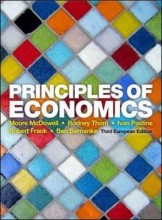Stereotyping, Prejudice, and Discrimination - The Cognitive Perpective
6 important questions on Stereotyping, Prejudice, and Discrimination - The Cognitive Perpective
Stereotypes as mental shortcuts
Stereotypes are schemas: schemas influence attention, perception, and memory
Stereotypes help us process social information efficiently: less effort is required when you know what to expect
Stereotypes can conserve mental energy
Use of stereotypes can free up mental energy that can then be applied to other things
Study found that participants who used a stereotype to remember information about a person then performed better on a cognitive task
Biased contruals of stereotypes
Stereotypes may be efficient, but may frequently be inaccurate
Accentuation of ingroup similarities and outgroup differences
>Assume members of ingroup to be more similar to us and members of outgroups to be more dissimilar to us than they may actually be
- Higher grades + faster learning
- Never study anything twice
- 100% sure, 100% understanding
Outgroup homogenity effect
The tendency to assume that within-group similarity is much stronger for outgroups than for ingroups.
Members of outgroup viewed as more similar to each other
Impaired ability to view outgroup members as distinct individuals.
“They’re all the same.”
Biased information processing
Stereotypes guide attention, perception, and memory
We may pay attention to and remember things that are consistent with our stereotypes and fail to notice or remember things that are inconsistent
Evaluating the Cognitive Perspective
Cognitive perspectives highlight how stereotypes can alter perception of and behavior toward different social groups
>Stereotypes may conserve mental energy but can lead to unintentionally biased judgments
Activation of a stereotype may be automatic and involuntary
>Stereotypes may influence behaviors and judgments in ways that are outside conscious awareness
Influence of automatically activated stereotypes can be corrected for if people are motivated and aware of potential biases
>Controlled processes
The question on the page originate from the summary of the following study material:
- A unique study and practice tool
- Never study anything twice again
- Get the grades you hope for
- 100% sure, 100% understanding
































